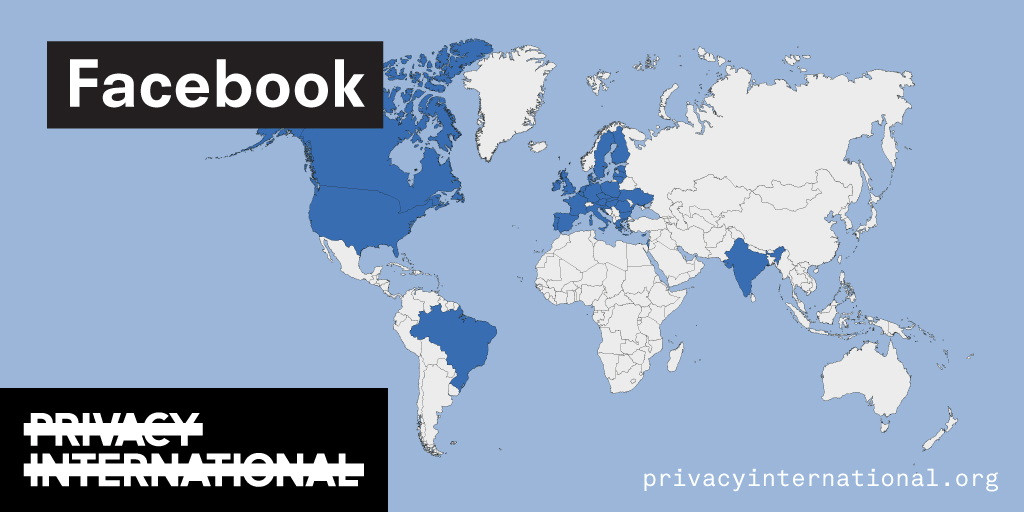Social media companies have failed to provide adequate advertising transparency to users globally

An analysis of what Facebook, Google, and Twitter have done to provide users with political ad transparency as of September 2019. Our full analysis is linked below.
Recently the role of social media and search platforms in political campaigning and elections has come under scrutiny. Concerns range from the spread of disinformation, to profiling of users without their knowledge, to micro-targeting of users with tailored messages, to interference by foreign entities, and more. Significant attention has been paid to the transparency of political ads, and more broadly to the transparency of online ads.
Notably, in the lead up to the 2019 EU Parliamentary elections Facebook, Google, and Twitter, as well as the Interactive Advertising Bureau and others, agreed to take a series of steps to prevent online disinformation on their respective platforms. These measures are reflected in a self-regulatory Code of Practice on Disinformation and the companies provided the European Commission with monthly updates on their progress. The Commission’s final report, due in November 2019, will indicate to what extent the companies met their commitments within the Code of Practice. Already, however, there has been criticism of the companies’ actions, which as will be documented below, were comparatively minimal. Additionally, while the Code of Practice is intended to be applied within the EU, PI has also looked at the implementation of similar measures in other countries. We are concerned that the measures are enforced unequally in different parts of the world, leading to unfair treatment of users.
This document outlines PI’s understanding of what steps Facebook, Google and Twitter have taken so far, PI’s analysis of the companies’ shortcomings in online political and issue-based advertising transparency, and suggestions for what companies should do moving forward.
Main takeaways
- Companies have applied different policies in different countries. In jurisdictions where companies are under pressure to act (by governments, institutions such as the EU, or civil society), they have adopted self-regulatory practices. Where such pressure is absent, they have, by and large, failed to act.
- Facebook, Google, and Twitter have taken a blatantly fragmented approach to providing users with political ad transparency. Most users around the world lack meaningful insight into how ads are being targeted through these platforms.
- Facebook provides heightened transparency for political ads in 35 countries (roughly 17% of the countries in the world). This means that for roughly 83% of the countries in the world, the company does not require political advertisers to become authorised, for political ads to carry disclosures, or for ads to be archived.
- Google provides heightened transparency for political ads in 30 countries (roughly 15% of the countries in the world).
- Twitter provides heightened transparency for ads tied to specific elections (rather than political ads more generally) in 32 countries (roughly 16% of the countries in the world).
- Outside of the US, Twitter does not treat political ads or political issue ads differently from promoted tweets, meaning that these ads (which are political, but not tied to an election), run without heightened transparency.
- Within the analysis, PI has provided an example of a UK Brexit party ad being run on Twitter without being marked political, and therefore with no targeting information provided. The ad has since been deleted.
- Outside of the US, Twitter does not treat political ads or political issue ads differently from promoted tweets, meaning that these ads (which are political, but not tied to an election), run without heightened transparency.
- The companies do not provide meaningful transparency into political issue ads (which each platform defines separately, or not at all) that have run or are running on their platforms.
- Google has not defined what it considers to be "political issues" and therefore transparency into what political issue ads have run or are running, to whom they are being shown, how much was spent, etc., is impossible.
- The targeting provided by Facebook, Google, and Twitter is inadequate - it is still impossible to meaningfully understand who political advertisers are targeting across the three platforms.
- The ad libraries of Facebook, Google, and Twitter, in varying degrees, provide broad ranges of targeting information on some ads in some countries, instead of meaningful insight into how an ad was targeted. This is especially problematic given the granularity with which advertisers, political or not, are able to micro-target ads users.
- Google is especially deficient given that it only provides broad ranges of insight, such as 100K-1M as the number of times an ad was shown, rather than meaningful information about how an ad or campaign was targeted.
- The ad libraries of Facebook, Google, and Twitter, in varying degrees, provide broad ranges of targeting information on some ads in some countries, instead of meaningful insight into how an ad was targeted. This is especially problematic given the granularity with which advertisers, political or not, are able to micro-target ads users.
Facebook asked PI to make its full comments publicly available. They are available below.


